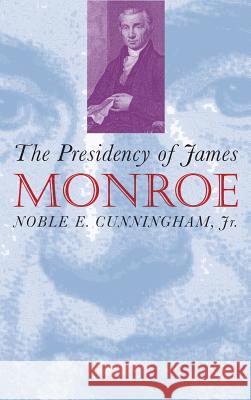The Presidency of James Monroe » książka
topmenu
The Presidency of James Monroe
ISBN-13: 9780700607280 / Angielski / Twarda / 1996 / 264 str.
Filled with new insights and fresh interpretations, this is the richest study yet published on the presidency of James Monroe, the last Revolutionary War hero to ascend to that august office.
Noble Cunningham's history of the fifth presidency (1817-25) shows a young nation beset by growing pains and led by a cautious politician who had neither the learning nor the intellect of Jefferson or Madison, but whose actions strengthened both the United States and the presidency itself. Cunningham makes clear that the mislabelled "era of good feelings" had more than its share of crises, including those resulting from revolutions in Latin America, Spanish possession of Florida, the depression of 1819, and the controversy over slavery in Missouri. Monroe, he shows, successfully defused these potentially explosive situations, most notably by negotiating the 1820 Missouri Compromise and announcing in 1823 what came to be known as the Monroe Doctrine, a document that still guides American policy in the western hemisphere. Cunningham effectively places these actions within the context of Monroe's life and times and sheds new light on the inner workings of his cabinet and his relations with Congress. In addition, he features the prominent roles of two future presidents: John Quincy Adams as secretary of state and Andrew Jackson as the controversial general whose actions in the Seminole War created a headache for the administration. Though substantially informed by previous scholarship, Cunningham writes largely from the abundant primary source materials of the era to provide an illuminating new look at a president and a nation on the brink of greatness.










